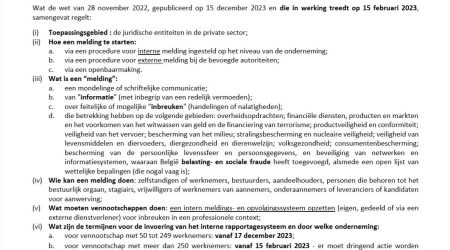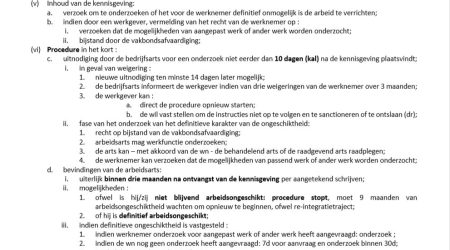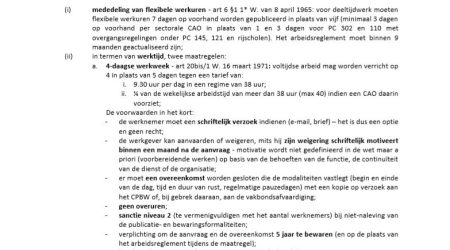COVID-19
Gepost op 3 maart 2020Here are a number of quick questions and answers - non-exhaustive - about managing Corona Virus COVID 19 in the workplace noting that under the circumstances the courts might be more "flexible":
(i) Does the employer have to take preventive measures: yes clearly on the basis of the law of August 4, 1996 and the code of well-being at work, the employer has very strict obligations in terms of prevention and risk analysis. Failure to comply with these may expose to criminal sanctions and liability for tort;
(ii) What does he have to do :
a. Analyze the risks (including by workstation / function);
b. Take precautionary measures and in particular:
- inform - in compliance with the legislation on the use of languages - about the risk and the means to limit it as well as about the expectations of the employer, in particular on prevention;
- make the protective / cleaning means available (masks, coveralls, soap, places, etc.);
- set up preventive measures such as compartmentalization of posts, limitations on meetings and travel, regular hand washing, invitation not to touch your face, more regular washing of premises - the virus can survive on objects, ask to be alert for signs of illness; etc
- ensure the repatriation of workers sent abroad or give them instructions if they are trapped in quarantine;
- inform of the right to spontaneously consult the prevention doctor at work;
- where applicable follow up after exposure;
c. Comply with the binding orders of the authorities imposing for example the partial "shutdown" of March 12, 2020 (creative, cultural, private or public activities, nightclubs, cafes, restaurants, and during the we’s the stores other than supermarkets, pharmacies or food).
(iii) Can he impose a medical examination? On the basis of the law of January 23, 2003, except for security or surveillance posts, no, it cannot in principle impose biological or genetic examinations. In any event, only the occupational health and safety adviser is empowered to carry out examinations.;
(iv) Can he impose a temperature test before entering the company? A priori no, as indicated above but he could ask the worker to take his temperature himself as a condition of entering the premises or ask the prevention adviser to impose it if he considers it necessary. It will be useful to remind the worker that he has the obligation to do nothing that could endanger his colleagues, the employer or third parties;
(v) Can he refuse access to a worker based on suspicion or signs? In principle yes, the employer having authority and in addition often being the owner of the premises, but such a refusal could trigger a constructive dismissal - even with maintenance of the remuneration. Safest approach is to agree with the workers to work from home (for example occasional telework) or a paid quarantine;
(vi) Can the employer ask the worker questions (travel, etc.)? In principle only those questions relevant to the job are allowed, but in this case, given the risk, the employer should be able to ask questions and better ask exposed workers to spontaneously report it;
(vii) Can the employer impose work at home or the use of telework? In principle no;
(viii) Does the employer have to pay the wages of a quarantined worker? If he is sick; only the guaranteed salary (one month), if he is not sick and there are no mandatory state quarantine measures, yes. If there is a compulsory quarantine or economic unemployment, unemployment will apply;
(ix) Should the employer get an advice from its committee for the prevention and precaution at work? Yes beforehand;
(x) Can the employer process medical data? In principle the GDPR prohibits it except under certain very strict conditions and limits but this does not apply a priori to oral questions.
Gelinkte publicaties

Nieuwsbrief DEL-Law over de Belgische klokkenluidersregeling (16-2-2023)

Onze laatste DEL-Law nieuwsbrief (in het Frans, Nederlands en Eng) gaat over de complexe nieuwe procedure voor de medische overmacht die sinds 28 november 2022 van kracht is. Met een samenvatting van de belangrijkste kenmerken van de procedure. Een must om te weten voor 2023..
